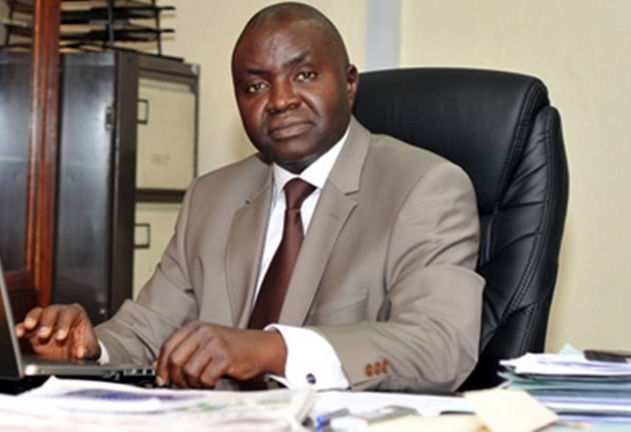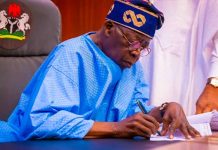Dr Muda Yusuf, before his retirement from Lagos Chamber of Commerce and Industry, (LCCI), where he served for 24 years and held the position of the Director General for 13 years, spoke with BizWatch Nigeria on inflation rate and poverty in the country as well as other macroeconomic issues. Here are excerpts:
Nigeria’s May inflation report showed the inflation rate has dropped but there are still complaints of rising food prices, which is a major contributor to the rising inflation. Is it logical to have inflation rate dropping while food prices are rising?
We must welcome the fact that there is a drop in inflation rate even though it is marginal. That is the direction we like things to go. On whether it is a paradox when food prices are rising and inflation rate is dropping, I will say first, we need to understand the concept of inflation numbers. It is the rate of increase in price.
If for instance, you have an increase in price of N100 and this month, there is an increase of N80. It is still an increase but the rate of increase has dropped. If inflation is dropping, it doesn’t mean that prices are dropping. What it means is that the rate at which it is increasing has dropped year-on-year.
The president recently said 10 million Nigerians have been lifted out of poverty and the World Bank a day after published a contrary figure that 7 million people have been plunged into poverty. Are conditional cash transfer and intervention funds enough to pull people out of poverty?
First, we need to understand the parameters and the methodologies that have been used to come up with the kind of numbers the president quoted. Even as bad as things are, some people are benefiting from the system. They may be few but some people are profiting from the environment even as bad as it is.
Imagine someone who is a rice producer in a situation where borders are closed, (though it has been partially opened now) and in a situation where rice cannot be imported. Anyone in that space, even though the quality of rice is not good, will be making money. They take advantage of scarcity to make money.
There are some pockets of people like that benefitting from the scarcity that has been created because of the challenges we have either with importation, productivity and other things.
What is important in accessing what has been said is to know exactly the assumptions, parameters and the methodology used. If we have that before us, we will be able to give a proper appraisal. The fact remains that inflation is the worst enemy of the poor. Inflation is perhaps the biggest accelerator of poverty because what high inflation rate does is that it reduces real income, reduces purchasing power and access to basic things of life, especially for the poor.
READ ALSO: Exchange: Market Cap Grows By Over N103bn, Ending Day In Bullish Mood
We have a food inflation rate above 22 percent. Food is basic and year-on-year, we have a 22 per cent inflation rate and that means that if you want to maintain the same quantity of items you bought last year, your budget must increase by 22 percent.
What has happened to many people is that income has dropped, some have lost their jobs and salaries have not been paid. There is no way you can say that income has been adjusted well enough to accommodate increase in price.
The moment we have that challenge, we face a high risk of dropping into poverty. It is worse for those who don’t have jobs and there are many of them, (unemployment is 33 percent), those who have not been paid, some are on suspension while others are taking half pay.
You can see why inflation can be a big problem of poverty. But whether the claim of the World Bank that seven million people have been thrown into poverty is correct, we will need to see the parameters, the assumptions, and methodology before making an informed judgement.
Generally, in any situation, some people will drop into poverty while others will climb out of poverty. But the probability is high that more people have dropped into poverty than those who have come out of it.
How satisfied are you with the level of disbursement of COVID-19 intervention funds by the Federal Government, especially those targeted at SMEs?
Many of our members have not been able to access the funds, only very few. They complained about access to the portal and application issues. About two or three that I know of. It is also possible some people got the money but don’t want to disclose this. That also happens sometimes. In terms of the percentage of our members that benefitted, it is extremely low.
Was there any feedback from NISRAL or CBN on why they are unable to access these funds?
Some of the issues they raised was that probably people didn’t fill their application forms properly. Some documents that were supposed to be provided were not provided and all that.
READ ALSO: Bill For State Police Scales Second Reading In The House of Reps
What are your thoughts regarding the recent harmonization of the CBN official exchange rate and the NAFEX rate?
I think it is a very good thing because we have said severally that it is better to promote the principle of convergence in the foreign exchange market because the advantage of it is that it will reduce the premium and arbitrage opportunities in place, reduce speculation and it will inspire more confidence and boost foreign exchange supply. It will improve certainty, predictability and inflow of foreign exchange. It will also improve the transparency of the process.
These are some of the advantages that we have with convergence. What the CBN has done is a good thing but we still have a long way to go because there is still a wide gap between the NAFEX rate, BDC rate, Open market rate and black-market rate. We still need to do a lot more to bridge that gap.
What can be done to bridge the gaps?
What can be done is to as much as possible allow the market forces to determine the price of the exchange rate because right now, even the NAFEX rate is not entirely a market rate, it is still being managed and fixed. Market rate is an equilibrium rate that clears the market.
In other words, what people bring to the market is what people buy. If you get to a market where there is an equilibrium of prices and you want to buy forex but couldn’t get it, it is not possible.
Once you have the money, you put it up, there is no hassle because the market price has been fixed, but today, if you go to the forex market and you want $10,000, you are not likely to get it. You may get between $1,000 to $3,000 to buy. If we have that kind of scenario, that is not a market rate. In a market determined rate, supply equals demand.
There was a time in 2018 when the Nigerian government entered into the Naira-Yuan swap deal with the Chinese government to enable trade between Nigerian businesses and Chinese partners. Have LCCI members benefited from this deal?
I am not aware that any of our members benefitted. That does not mean people have not benefited. I think that the total value of the swap deal was N2.5 billion. Total trade between Nigeria and China will be over N30 billion and when we compare the value of swap deal with the total value of trade between the two countries, it is insignificant.
Also, if you tell an average Chinese that you want to buy goods, he will ask you to pay in dollars. You can’t impose Yuan on him, it is simply business – willing buyer, willing seller. About 90 per cent will tell you to pay in dollars into their account before picking the goods.
That is the way it is, if anyone wants to buy something from Nigeria, as an exporter, will you allow the person to pay you in naira? If as an exporter of cocoa to China, and your business partner wants to pay you in naira, you won’t take it. The whole idea of the swap is that you can receive naira and those people can also be paid in their own currency but it is not working.
What is your view regarding the recent suspension of the use of Twitter by the Nigerian government?
There should not be any system where there won’t be any form of control at all. What we can be discussing or debating is the nature and character of the control and who exercises the control. We cannot have a platform as powerful as social media where people post anything without any control at all, even terrorists and Boko haram are posting. I think there has to be some measure of control.
This is why as a registered online media house, a reporter cannot just bring any report and it will be published, the editor has to examine it and say this story is good for publication. The same with radio and TV, if you are saying too much, the producer will cut you off. All of them have frameworks for control and it could also be self-regulation.
But we can have conversations around the nature of the control, who is giving the control, among others. The social media platform can form an association and put a code of conduct in place as to what should be posted and should not be posted.















